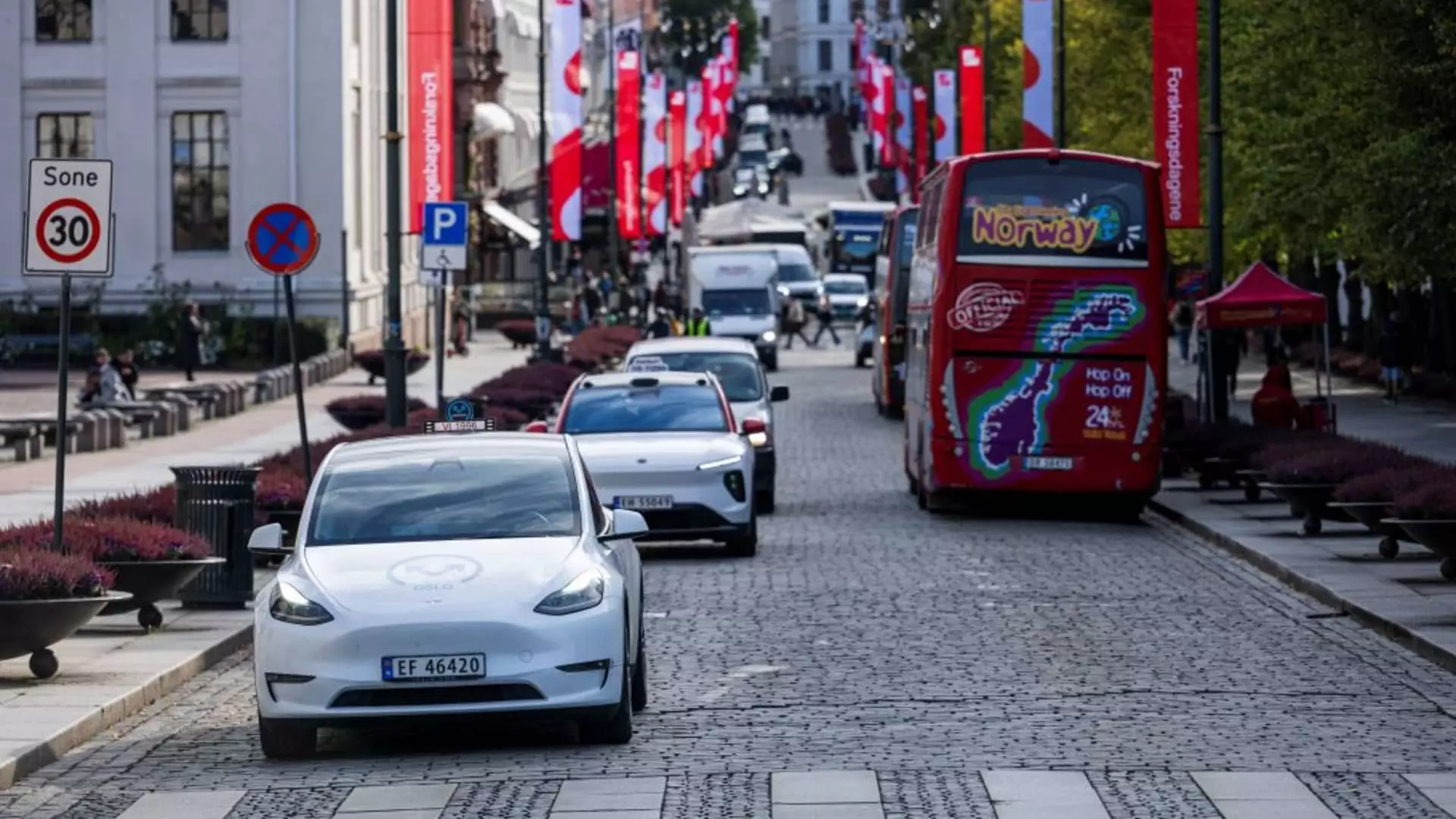The automotive landscape, especially for electric vehicle (EV) manufacturers, is experiencing considerable upheaval as geopolitical tensions and market fluctuations converge. Recently, Tesla, the leading EV manufacturer, has faced a significant decline in its stock, plummeting approximately 5% on the stock market after President Donald Trump announced steeper tariffs on imported goods from various countries, including China, Canada, and Mexico. This downturn is compounded by disappointing vehicle registration data from key European markets, demonstrating that Tesla may be at a crossroads, navigating through an increasingly challenging environment.
The Breach of Confidence: Impact of Tariffs
President Trump’s decision to impose a 10% tariff on goods imported from China—a country crucial to Tesla’s production, accounting for nearly half of its automobile manufacturing—has undeniably rattled investors. The auto industry is inherently sensitive to supply chain disruptions, and while Tesla’s manufacturing facilities in the U.S., Berlin, and Shanghai provide some insulation against these pressures, the reliance on a global parts supply chain remains a significant vulnerability. During a recent earnings call, Tesla’s CFO, Vaibhav Taneja, articulated these concerns, noting the potential adverse effects of tariffs on the company’s profitability. He underscored the ongoing dependency on globally sourced parts, which makes the company susceptible to any trade barriers.
Registration Declines: Red Flags from Europe
In addition to tariff troubles, Tesla’s performance in Europe is under scrutiny due to alarming declines in vehicle registrations. The most troubling statistics emerged from France, where registrations nosedived by a staggering 63% in January compared to the previous year, according to the Plateforme Automobile. This sharp decline starkly contrasts with the general trend of electric vehicles and overall car sales across the continent, which, while not thriving, did not experience losses of such magnitude. Similarly, in Sweden and Norway, Tesla’s sales fell by 44% and 38%, respectively, reflecting a concerning trend that warrants deeper investigation into consumer sentiment and competitive dynamics in these markets.
In a bid to counteract waning demand, Tesla has resorted to slashing lease prices for its Model 3 sedan and bare-boned Cybertruck employees—a move indicating a strategic pivot that highlights the critical need for Tesla to stimulate sales in a turbulent market. Independent analysts have released forecasts suggesting that sales projections for the Cybertruck are lower than initially anticipated, with one expert predicting only around 21,000 units sold by 2025. This prediction follows a period marked by overproduction and diminishing consumer interest, leading to an unprecedented backlog of unsold inventory—a worrying sign for a company known for its robust demand.
Elon Musk, Tesla’s CEO, has historically aligned himself with certain political figures and causes, notably investing heavily in Trump’s campaign efforts. However, this relationship may paradoxically affect brand perception as the broader political climate shifts. As Musk endorses political parties, including Germany’s far-right Alternative for Germany (AfD), there can be substantial implications for Tesla’s brand value, which saw a decline of 26% in 2024 according to Brand Finance. This decline illustrates how external factors, including political endorsements and trade policies, can reverberate through corporate reputation and consumer willingness to engage.
Tesla finds itself grappling with a trifecta of challenges: looming tariff implications, declining registrations in Europe, and a compelling need to re-evaluate its market strategies. These elements collectively suggest a pivotal moment in Tesla’s trajectory, where adaptability and resilience will determine its fate. As the EV market continues to evolve amidst political and economic uncertainty, Tesla must navigate these turbulent waters with strategic foresight if it hopes to maintain its dominant position in the fast-changing automotive landscape. The coming months will undoubtedly reveal whether Tesla can adjust effectively or succumb to the mounting pressures it currently faces.

